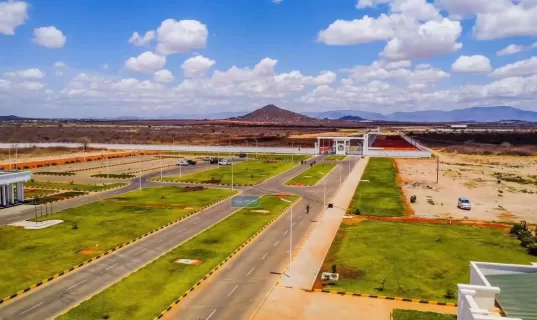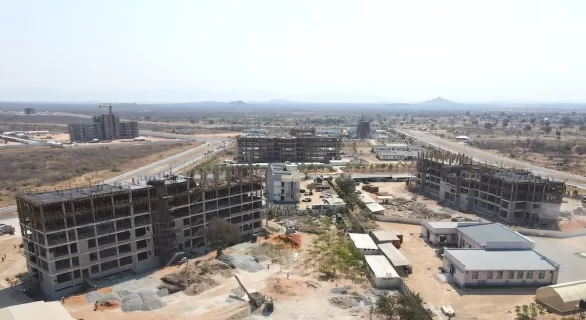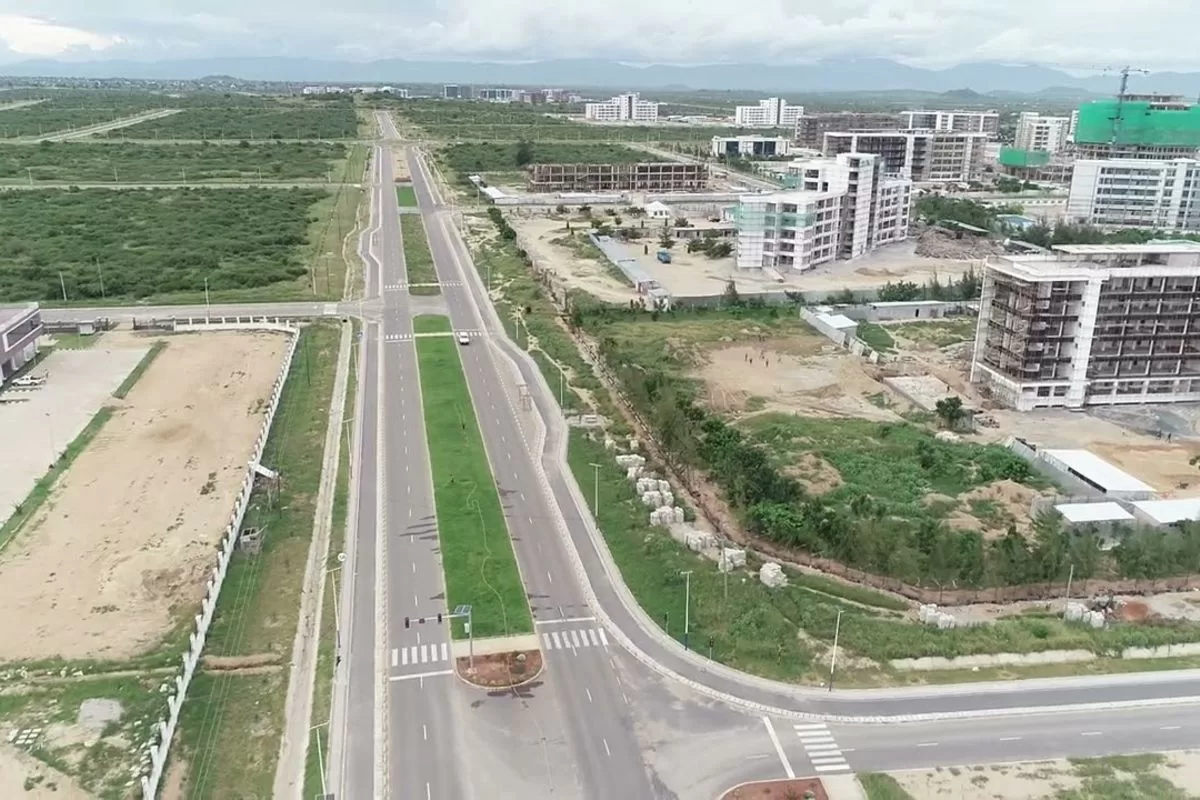The government of Tanzania has proposed the construction of a new multi-billion administrative capital named Magufuli City. The project is expected to be located strategically, where many can access it. It is positioned seventeen kilometers from Dodoma’s city center as an upcoming modern development. The construction of Magufuli City is set to redefine Tanzania’s administrative landscape as it will consolidate all governmental operations in a single and dynamic center. The construction of the administrative city is located in Ihumwa ward, covering an area of more than 617 hectares. Recent updates note that the project is partially completed, with several buildings in operation as construction progresses. The city is meant to act as a landmark symbol of Tanzania’s growth and modernization. Named after former President Magufuli, the city is more than just an urban development. It is a strategic move that seeks to streamline government services and operations.
Project Summary
Location: Ihumwa ward
Area: 617 Hectares
Significance: Tanzania’s Administrative Capital
Progress: Halfway completed
Cost of Construction: US$5 Billion
The Scope of Implementation on the Multi-Billion Administrative City
The implementation of Magufuli city is one that is taking shape in a positive and insightful way. The structures constructed in the city are already becoming operational and moving forward, a signal of change. Furthermore, it holds the promise of a modern administrative capital that will ensure cohesion and effectiveness. On the verge of fulfillment, it is expected to be a revolutionary step towards improving Tanzania’s administrative means. Conversely, this project lays the groundworks for other projects in the future. The main reason for this is that it exemplifies the forward-thinking strategy required for Tanzania’s growth. Integrating community involvement and sustainability, the modern city has the potential to change the entire country.

The State of Affairs Regarding the Multi-Billion Magufuli City
Recent insights on Tanzania’s new $5 billion administrative capital, Magufuli City is halfway done. The administrative city’s construction is situated in the Ihumwa ward and occupies a great area. It is noted that the city covers more than 617 hectares, with half of it well under completion. Once fully completed, the city is expected to host multiple structures, with some already operational. One of its uses is to serve as a prominent representation of Tanzania’s development and modernization. Moreover, it is expected to be more than a constructive community, with its calculated approach aimed at streamlining government operations and services.
Current Status:
Currently, the city is separated into several zones, each containing diplomatic offices and ministry buildings. Many of Tanzania’s residents are hopeful that they will have greater accessibility to government services due to the centralization. They hope that this centralization will be advantageous to them in saving time and money. After it is fully implemented, the city is expected to have a positive impact on various wards such as Mtumba and Ihumwa. Other neighboring communities will also appreciate the new city, bring prospects in social and economic dynamics.

The construction of Magufuli City is divided into distinct zones, including government ministries and diplomatic offices. Furthermore, it also includes social services and national housing. Others include commercial sectors, as each building within the city adheres to a uniform design. The new administrative city is projected to include the Parliament and courts in its infrastructure landscape. Urban planning expert Dr Rehema Mshana noted that “having all government offices in one place will greatly enhance efficiency.”
She noted its convenience: “Citizens will no longer need to traverse different parts of Dodoma to get their documents signed. This centralization will save time and resources, making government services more accessible to the public.” Upon completion, the city is expected to bring numerous benefits to the surrounding regions, such as Mtumba and Ihumwa wards. Residents are already anticipating the economic implications and opportunities that the city promises. The significant influx of government employees and visitors will benefit economic growth.
Also read:
Challenges Facing the Construction of Tanzania’s New Administrative Capital
Despite the many advantages that Magufuli City promises to bring, the project does not come without challenges. The project, with an estimated cost of approximately $5 billion, calls for a significant government investment. However, regional officials and planners are confident in its delivery. They note that the long-term benefits will far outweigh the initial expenditures and costs used in its implementation. “We are aware of the financial and logistical challenges but are committed to seeing this project through.
The benefits of efficiency, economic growth, and improved quality of life are immense,” noted one of the National Housing Corporation engineers. Furthermore, experts also elucidate the importance of ensuring that the city remains inclusive and accessible to all Tanzanians. “It is crucial that Magufuli City does not become an isolated enclave for government officials,” noted Dr Mshana. “The success of this project depends on its integration with the broader community and its ability to catalyze regional development.”
Tanzania’s Multi-Billion Administrative Capital as a Beacon for Change
The construction progress and operationalization of buildings in Magufuli City are a beacon of change. It harbors the prospects for a unified, efficient, modern administrative capital that is becoming a reality. The project exemplifies the forward-thinking approach necessary for Tanzania’s development and sets a precedent for future initiatives. Harnessing strategic plans such as community involvement and a commitment to sustainability, the modern city stands poised to transform not just Dodoma but the entire nation. The city also follows strategic roadmaps implemented by other nations, such as Malaysia’s administrative capital, Putrajaya.
Also read:
